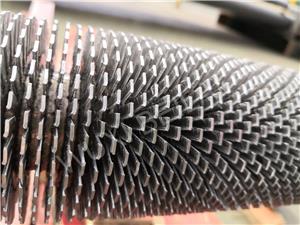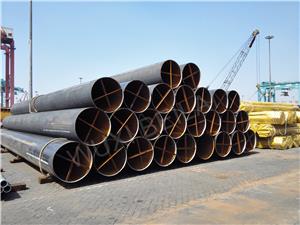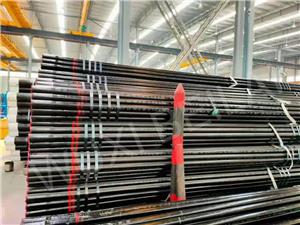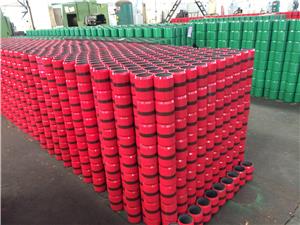Customised Insulation Pipe: A Modern Solution for Energy Efficiency
Improving energy efficiency has always been a hot topic in today's world, and customised insulated pipes have become one of the indispensable products for reducing energy consumption and managing heat loss. customised insulated pipes not only improve thermal performance, but also play a vital role in sustainability by reducing energy costs and minimising carbon footprints. customised insulated pipes are designed to meet the specific requirements of a wide range of applications, offering greater energy efficiency, durability and ease of installation.
What is a customised insulated pipe?
customised insulated pipe is a specially designed pipe used to insulate various types of piping systems, including pipes used for heating, cooling, hot and cold water piping and industrial processes. Unlike standard insulation, custom options are tailored to the specific needs of the environment in which they are used. These pipes are carefully crafted to meet specific dimensional, material and performance criteria to ensure better insulation and relatively low energy loss. One of the main objectives of using insulation is to maintain the desired temperature inside the pipe while preventing the surrounding environment from being adversely affected.
Types of customised insulated pipes
There are several types of customised insulated pipes, each designed for a specific application. Here are some of the most common types:
1. pre-insulated pipe
Pre-insulated pipes are a common type of customised insulated pipe. These pipes are pre-installed with insulation that prevents energy loss. The insulation is usually made of materials such as polyurethane, polystyrene or mineral wool, depending on the desired thermal resistance. Pre-insulated pipes are widely used in district heating and cooling systems where large quantities of water or steam need to be transported over long distances. The main advantage of these pipes is their ability to maintain a stable temperature and minimise energy loss during transmission.
2. Flexible insulated pipes
Flexible insulation pipes are more adaptable and are often used in installations that require bends, curves or complex layouts. These pipes are ideal for ductwork or heating, ventilation and air conditioning (HVAC) installations where flexibility and simplicity of installation are critical. Flexible insulated pipes are usually made of foam rubber or elastomeric insulation, which helps to achieve excellent thermal resistance as well as ease of handling and installation.
3. Rigid Insulated Tubes
Rigid insulated pipes are made of dense, solid insulation materials that provide excellent thermal protection for systems exposed to harsh environmental conditions. These pipes are commonly used in industrial applications such as power plants and chemical processing facilities because they must withstand high temperatures and harsh weather conditions. Materials such as calcium silicate or glass fibre have high thermal stability and fire resistance and are therefore commonly used in rigid insulation pipes.
4. Insulation pipes
In addition to thermal insulation, certain environments require noise or vibration reduction. Acoustic insulated pipes are designed to reduce the transmission of sound and vibration and are therefore ideal for use in buildings, hospitals or any environment where noise control is required. These pipes often feature layers of soundproofing materials such as rubber or acoustic foam, which are used to absorb and reduce unwanted sound waves.
Applications of customised insulated pipes
customised insulated pipes are used in a wide range of industries, each requiring specific features to meet their operational needs. Some of the most common applications include
1. District heating and cooling systems
In district heating and cooling networks, large heating or cooling plants provide energy to multiple buildings or communities. customised insulated pipes are used to transport hot water, steam or chilled water from the central plant to the end user. The main aim is to minimise energy loss over long distances and to maintain the temperature of the water or steam. By using pre-insulated pipework, companies can significantly reduce heating and cooling costs while ensuring a consistent delivery of energy to end-users.
2. Plumbing and HVAC systems
customised insulated pipes are also widely used in plumbing and HVAC systems, where they are critical to maintaining water temperature and improving energy efficiency. For example, insulation in hot water systems prevents heat loss as water travels through the pipes, ensuring that the system operates efficiently. Similarly, HVAC systems rely on insulation to prevent heat from escaping from the pipes, thus improving the overall energy efficiency and comfort of residential and commercial buildings.
3. Industrial Process Systems
In industrial environments, custom insulated piping is critical to maintaining the temperature of fluids that are vital to the manufacturing process. Whether it's transporting steam in a power plant or chemicals in a refinery, insulated piping helps maintain precise temperature control, which is essential for efficiency and safety. Customised services ensure that piping meets specific temperature requirements, resists corrosion and is durable in harsh operating environments.
4. Refrigeration systems
Custom insulated tubing is a critical component of refrigeration systems, and keeping temperatures low is essential for preserving food, pharmaceuticals and other sensitive products. Insulation in refrigeration systems reduces the risk of temperature fluctuations, prevents energy loss and ensures that the system remains efficient over time. We can customise solutions to meet your specific insulation needs, such as resistance to freezing or extreme temperatures.
Benefits of customised pipe insulation
There are several key benefits to using customised pipe insulation, making it an attractive option for many industries:
1. Energy efficiency
By minimising heat loss or heat gain, customised insulated pipes help to ensure that energy is used more efficiently, resulting in lower energy costs and a reduced carbon footprint. Whether it's for district heating, cooling systems or plumbing installations, the greater thermal efficiency offered by customised pipes can result in significant energy savings.
2. Cost savings
While the initial cost of customised insulated pipes may be higher than standard options, the long-term cost savings make them a worthwhile investment. Because these pipes are built to last, there is reduced energy consumption, lower operating costs, and fewer repairs, all of which contribute to significant savings over the life of the system.
3. Enhanced durability
customised insulated pipes are designed to withstand specific environmental conditions of use, be it high temperatures, extreme weather or chemical exposure. This enhanced durability ensures that the pipe provides long-term performance while minimising maintenance, thus reducing replacement frequency and costs.
4. Environmental benefits
By improving energy efficiency and reducing energy waste, customised insulated pipes contribute to more sustainable practices. Reducing energy consumption not only reduces costs, it also helps to reduce greenhouse gas emissions and the overall environmental impact of building or industrial operations.
Choosing the right custom insulation pipe
Choosing the right custom insulation pipe depends on a variety of factors, including application, environmental conditions and performance requirements. Here are some key factors to keep in mind:
1. Insulation material
The type of insulation used in the pipe is critical in determining the pipe's insulation performance. Materials such as polyurethane, fibreglass and elastomeric foams each offer different benefits, so it is important to choose a material that is best suited to the needs of the specific application.
2. Pipe size and shape
Through customisation, pipes can be manufactured to perfectly match the size and shape of the installation system. Whether you need a pipe that fits into a tight space or has a specific curve or angle, a customised solution ensures that the insulation will work effectively without compromising the design of the system.
3. Temperature and pressure requirements
Consider the temperature and pressure conditions to which the pipe will be subjected. Some applications may require the pipe to be able to withstand high temperatures, while others may need to perform well at low temperatures. In addition, the pressure within the pipe should be considered during the selection process to ensure that the insulation is effective over time.
customised insulated pipes are commonly used as a modern solution to improve energy efficiency and reduce operating costs across a wide range of industries. From district heating systems to industrial processes, these pipes are designed to deliver tailored performance, ensuring energy loss is minimised and maximum efficiency is achieved. By taking into account factors such as insulation, pipe sizing and specific application requirements, businesses and homeowners can make informed decisions that lead to long-term energy savings, cost reductions and environmental benefits.




